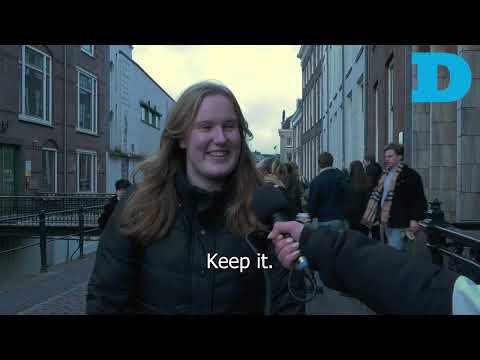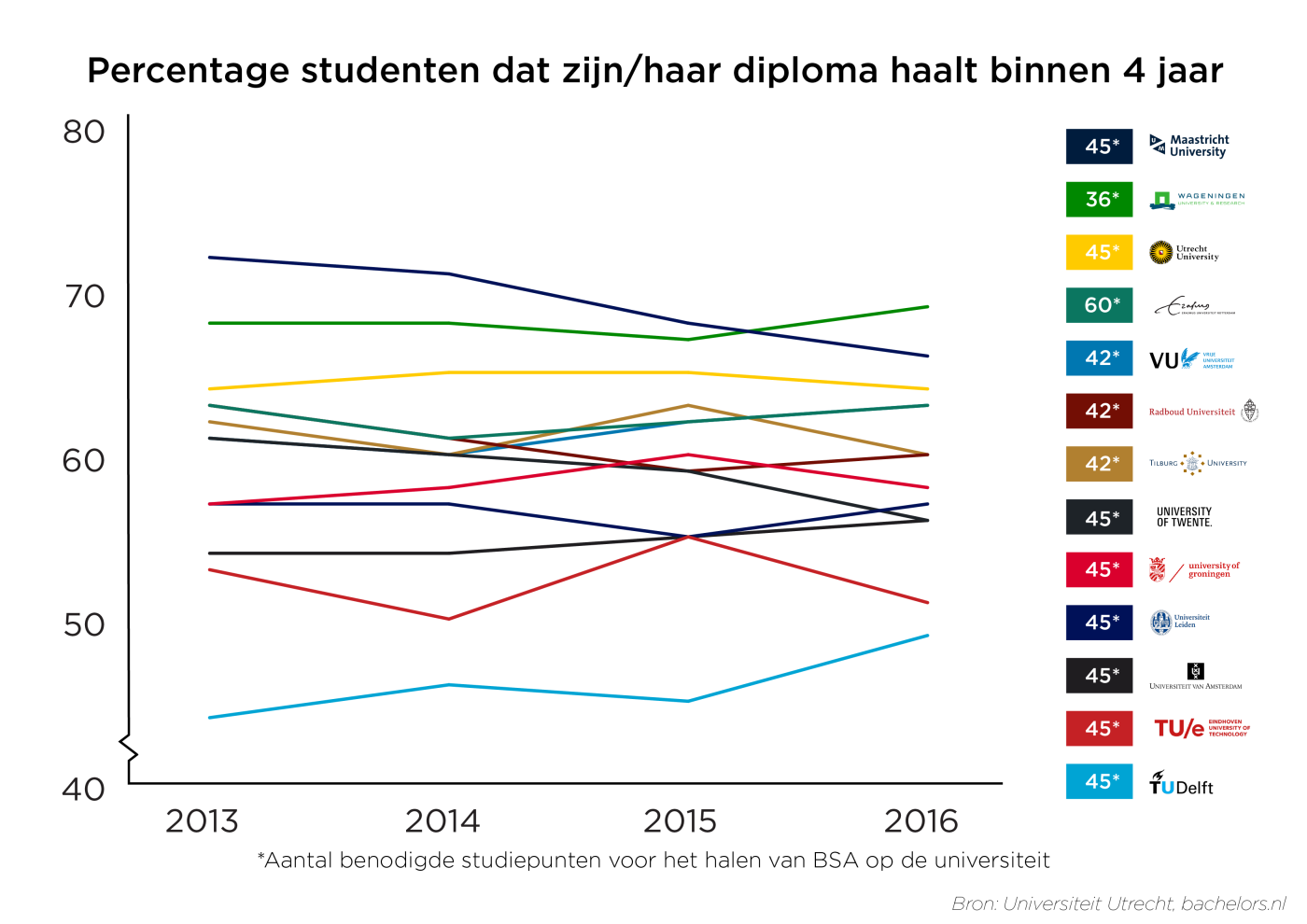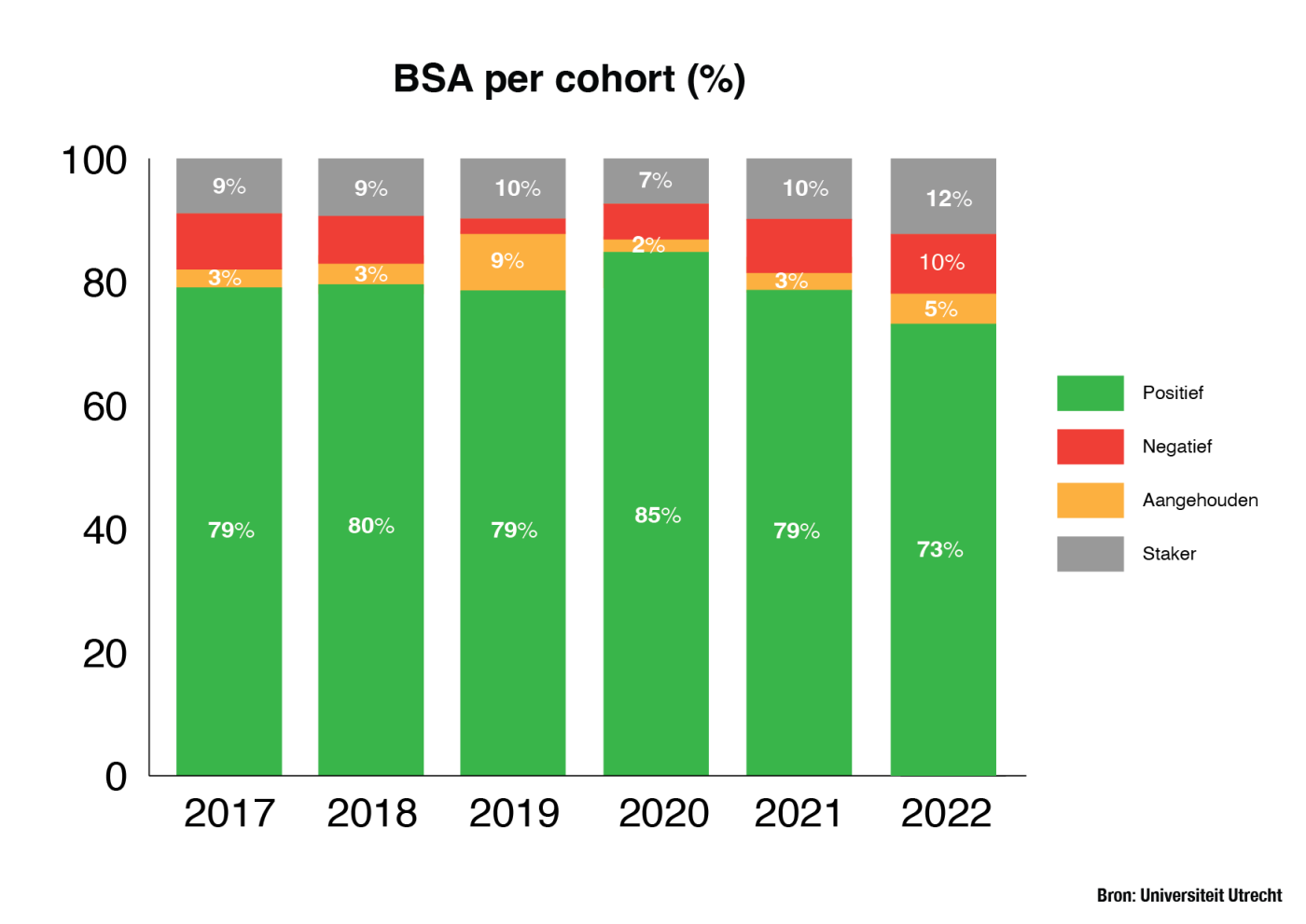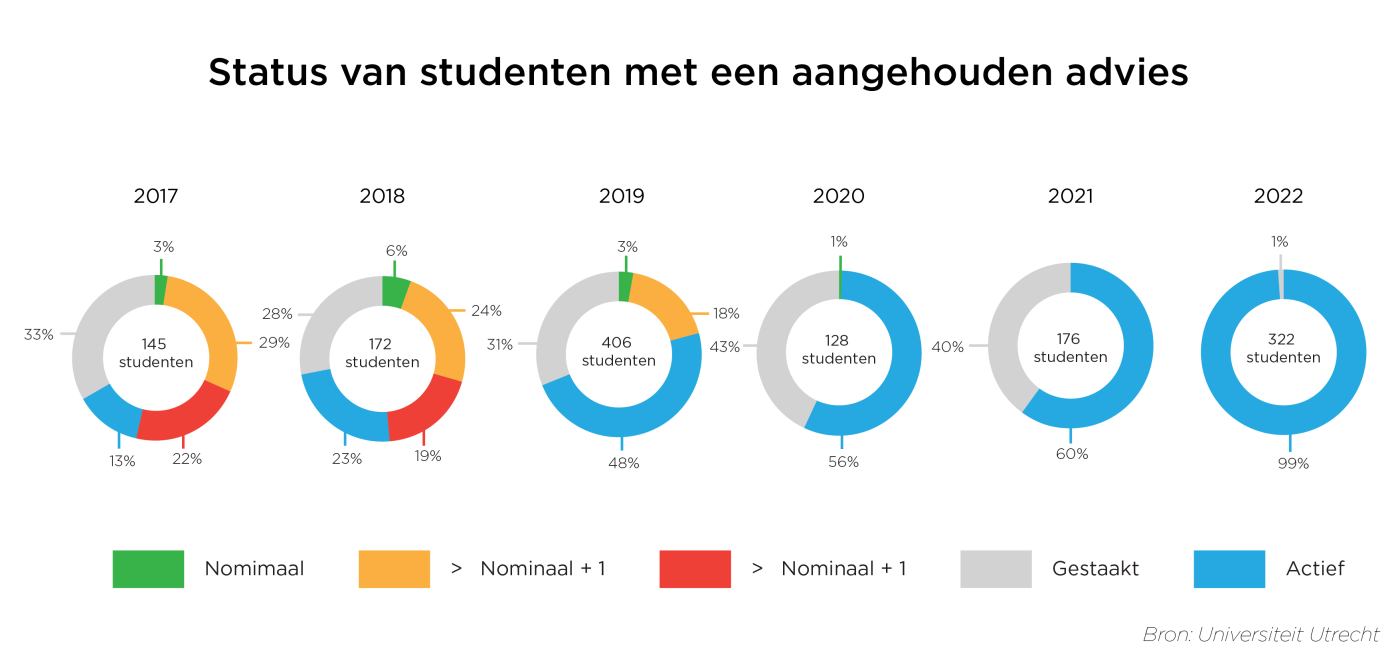Slight decrease in the number of students allowed to move on to the second year after Covid
Higher BSA requirement doesn't lead to better performance

The Minister of Education, Robbert Dijkgraaf, has submitted a proposal to the Dutch House of Representatives to revise the BSA. He proposes to lower the number of credits required of first-year Bachelor's students to thirty instead of sixty. According to the minister, the current BSA stresses students out too much, which can have negative consequences on their performance and cloud the assessment of their suitability to continue on the programme.
Dijkgraaf is taking into account the fact that the first year of a Bachelor's degree already is challenging in many ways, so demanding fewer credits from students would give them more room to get acquainted with student life and the transition to independence. According to his proposal, students from the academic year 2025-2026 onwards would only need to obtain thirty credits in the first year to be allowed to move on to the second year. However, they would need to obtain thirty credits in the second year as well.

Requirements differ greatly
Currently, universities and universities of applied sciences are free to define the minimum number of credits required. The BSA was first introduced in 1993 at universities of applied sciences and the number of credits demanded has only increased since then. In 2012, Erasmus University, in Rotterdam, made it mandatory to obtain 60 credits in the first year, while most universities demand between 40 and 45 credits.
Universities' main argument for using the BSA is that it helps students to know whether they are pursuing the right studies. It would be frustrating for students to only find out that they will not manage to graduate three years into the programme. In addition, universities find that the BSA makes students graduate faster. Most Bachelor's programmes offered by research universities last three years, but some students end up taking a bit longer to obtain their diplomas.
The figures show that students' performance is not directly proportional to how high the BSA is. If that was the case, students at Erasmus University would have the best performance of all, which is not true. Besides, the university with the lowest BSA in the country (36 credits) is in second place when it comes to students' results after four years. Students from universities that demand 42 credits in the first year obtain better grades than those enrolled in universities that demand 45 credits. As a general rule, technical universities score slightly lower than other universities. At UU, approximately 65 percent of students graduate with their Bachelor's within four years, which is above the national average.

Utrecht University has a BSA of 45 credits. Before the pandemic, about 80 percent of first-year students obtained those credits. The percentage of students who failed the first year was roughly 8 percent. After 2021, the number of students moving on to the second year decreased slightly, which is attributed to the Covid-19 pandemic.
First-year students were struggling at the time because most classes were offered online. In the spring of 2020, the university decided to suspend the BSA and in the academic year 2021-2022, the BSA was lowered by 7.5 credits to 37.5. The students who moved on to the second year didn't have to take a centralised final exam. Although students scored better grades on average during the pandemic, many of them were struggling with their studies, which is reflected in the number of drop-outs.
In the first year of the pandemic, fewer students were forced to abandon their studies due to the rules being relaxed. After 2021, the percentage of students who were allowed to stay dropped somewhat, reaching 75 percent in 2022. The number of suspended students reached 5 percent that year. Students are suspended when they fail to obtain the necessary number of credits but the programme decides to give them another chance. This can happen due to several reasons, such as personal circumstances or force majeure. Suspended students get an additional year to obtain 45 credits. In the academic years 20-21 and 21-22, around 20 percent failed to obtain the BSA.

A flexible approach
According to the figures, the number of credits required is not decisive for students' performance. Many suspended students manage to stay in the programme. Even so, universities and universities of applied sciences still think that academic performance is influenced by the BSA. By obtaining enough credits in the first year, students are considered to have sufficient knowledge to graduate on time (that is, in three to four years). Not obtaining the minimum number of credits in the first year would also mean that the student would be in trouble later on, having to catch up on first-year content. Last year, DUB asked its panel of students and employees to comment on the topic and they came to a similar conclusion.
In the video above, students are approached on the street. It looks like some of them have the same reasoning. They say that the BSA might be momentarily annoying, but obtaining it does pay off later on. However, they do ask universities to be more flexible, taking personal circumstances into account. Universities say that such measures already exist, but students find them too strict and believe there is room for improvement.
Stress and anxiety
Student organisations ISO and LSVb are in favour of ditching the BSA altogether. In their view, the BSA only stresses students out unnecessarily. They argue that the requirement to obtain a minimum number of credits in the first year defeats the purpose as it forces students who like their programmes to drop out. Late last month, ISO came up with its own Coalition Agreement, proposing an alternative to the BSA: instead of an obligation to obtain a certain number of credits, students would get a substantiated recommendation. There would be an indication of how many credits to go for in the first year, but those who do not manage to score them would have another chance to do so in the second year.
It looks like Dijkgraaf is sensitive to the arguments presented by student organisations, but he is not willing to abolish the BSA. Instead, he proposes to lower the number of credits to 30 or less. Given that no direct correlation has been found between how high the BSA requirement is and how well students do, this could be a way to give students a bit more breathing room.